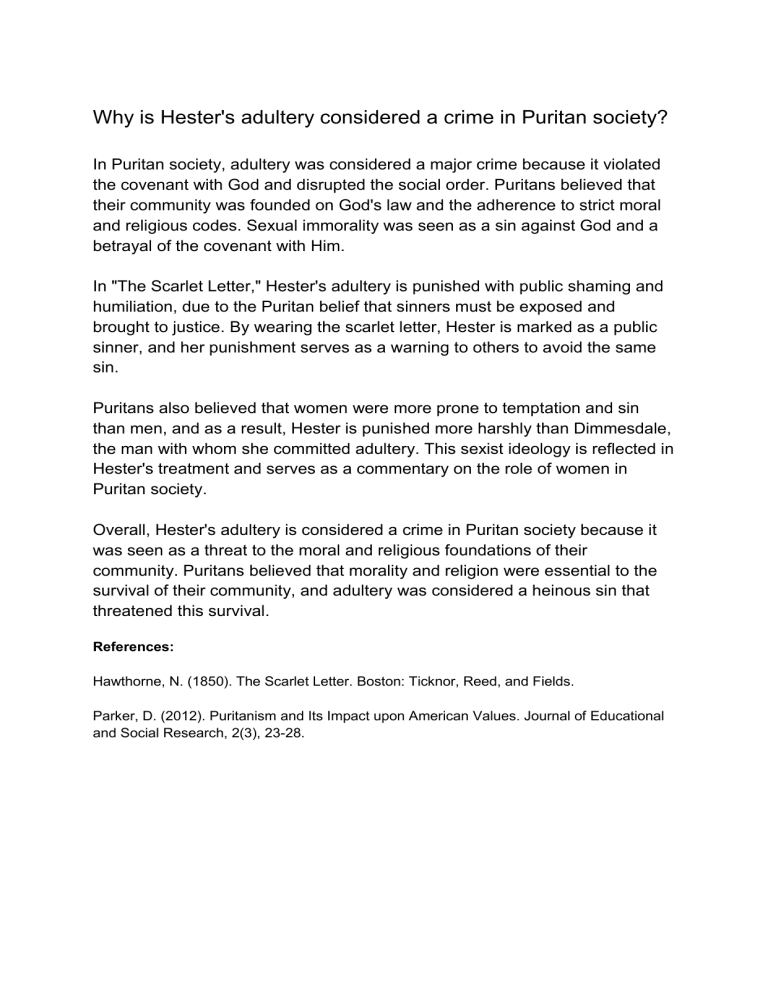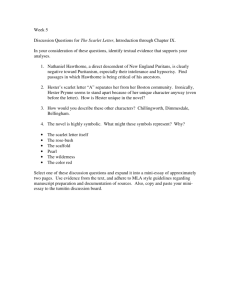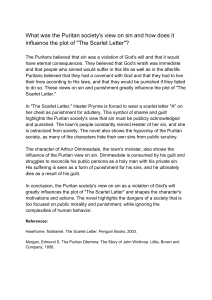
Why is Hester's adultery considered a crime in Puritan society? In Puritan society, adultery was considered a major crime because it violated the covenant with God and disrupted the social order. Puritans believed that their community was founded on God's law and the adherence to strict moral and religious codes. Sexual immorality was seen as a sin against God and a betrayal of the covenant with Him. In "The Scarlet Letter," Hester's adultery is punished with public shaming and humiliation, due to the Puritan belief that sinners must be exposed and brought to justice. By wearing the scarlet letter, Hester is marked as a public sinner, and her punishment serves as a warning to others to avoid the same sin. Puritans also believed that women were more prone to temptation and sin than men, and as a result, Hester is punished more harshly than Dimmesdale, the man with whom she committed adultery. This sexist ideology is reflected in Hester's treatment and serves as a commentary on the role of women in Puritan society. Overall, Hester's adultery is considered a crime in Puritan society because it was seen as a threat to the moral and religious foundations of their community. Puritans believed that morality and religion were essential to the survival of their community, and adultery was considered a heinous sin that threatened this survival. References: Hawthorne, N. (1850). The Scarlet Letter. Boston: Ticknor, Reed, and Fields. Parker, D. (2012). Puritanism and Its Impact upon American Values. Journal of Educational and Social Research, 2(3), 23-28.





